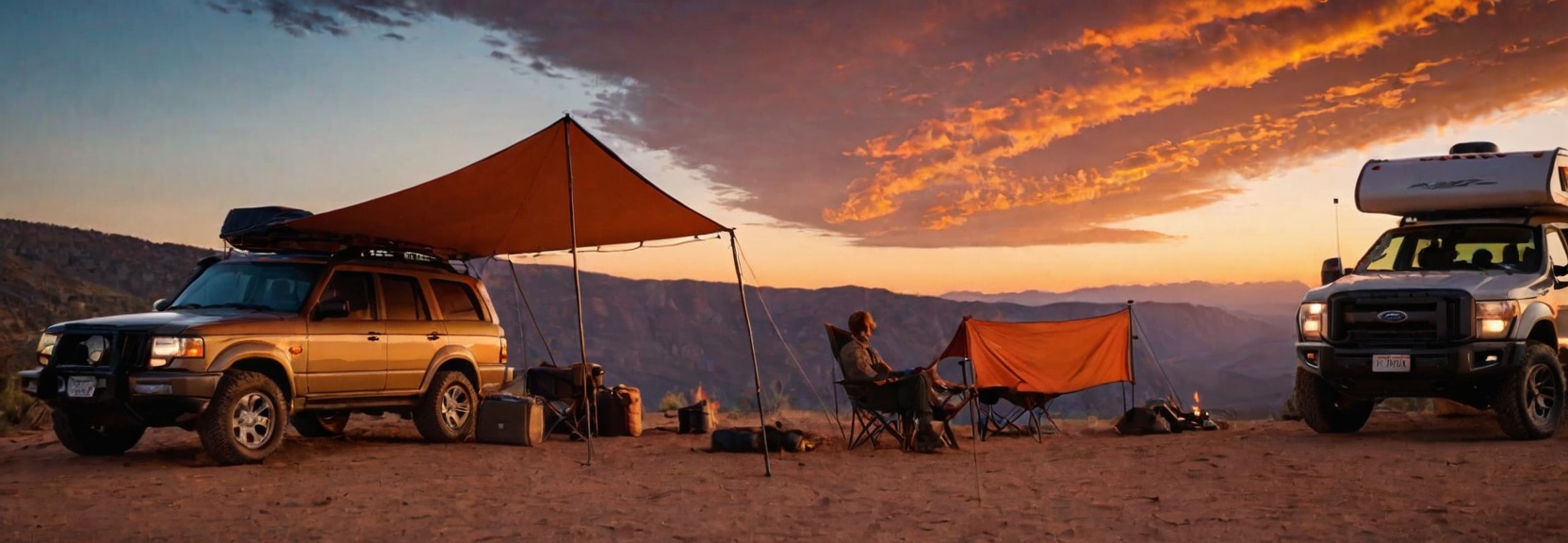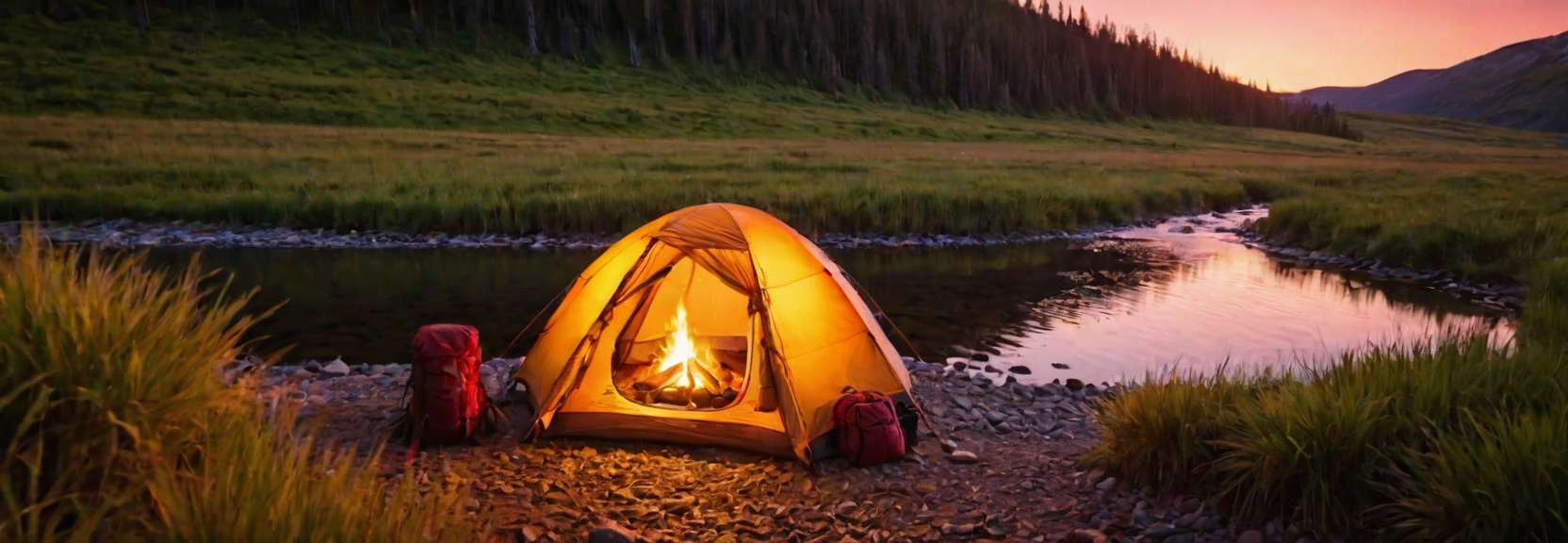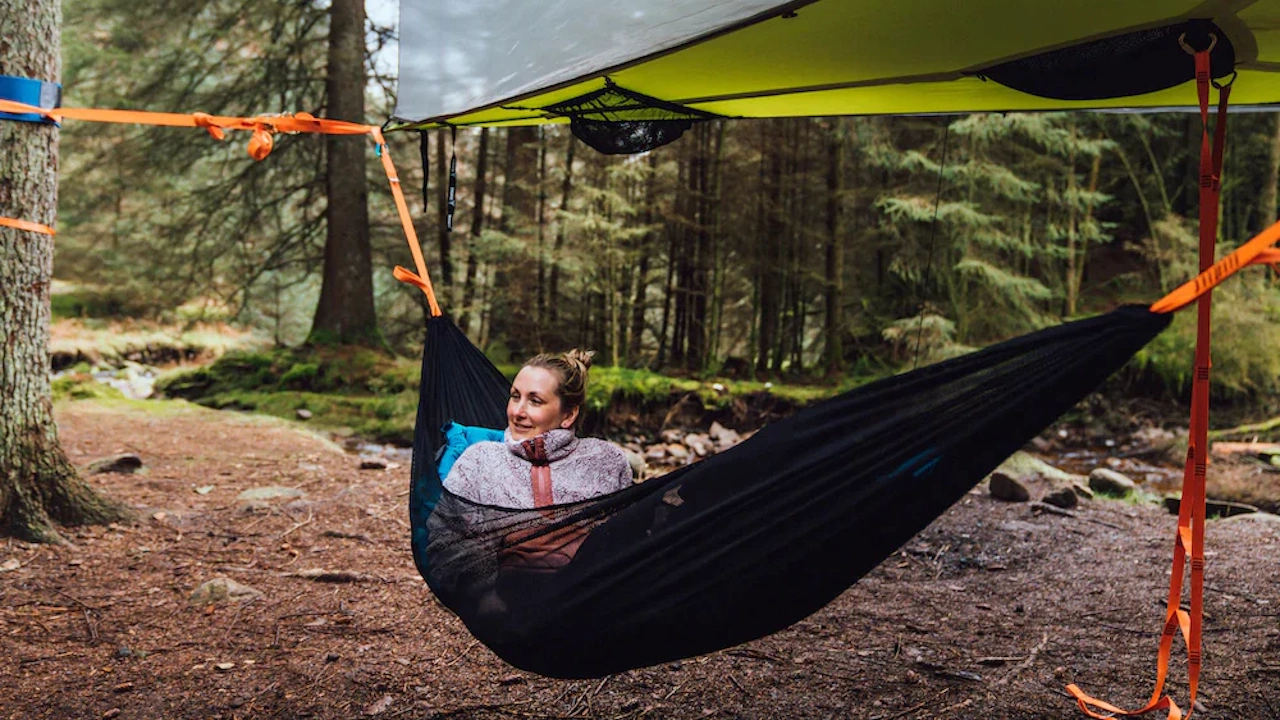- Hammock Camping: Benefits and Drawbacks
- Tent Camping: A Comprehensive Overview
- Choosing the Right Option for Your Adventure
- Expert Opinions: What Modern Campers Prefer
Hammock camping has surged in popularity among outdoor enthusiasts, particularly those seeking a unique blend of comfort and adventure. One of the key benefits of hammock camping is its lightweight nature, which makes it an ideal choice for minimalist backpackers. Experts suggest that when compared to traditional tent camping, hammocks can save weight—typically weighing between 1 and 4 pounds—dramatically reducing the load you have to carry on the trail ([source](https://www.backpacker.com/skills/how-to-hammock-camp)). Additionally, hammocks offer a suspended sleeping arrangement that allows for better ventilation and a cooler sleeping environment, especially suitable for warm weather camping.
However, there are drawbacks to consider. Hammock camping can be less comfortable for those who are not accustomed to swinging between trees, especially for individuals who prefer the stability of a traditional camping ground. If you’re camping in regions where trees are sparse or unsuitable, finding a location becomes challenging. Furthermore, while sleeping in a hammock can be a cozy experience, it may not provide sufficient insulation, exposing campers to colder temperatures at night. A sleeping pad or underquilt is often necessary, which can add weight to your pack and complicate packing.
“Hammock camping can be incredibly relaxing, but it does come with a learning curve. It’s important to experiment with different setups to find what works for you,” says outdoor educator and hammock enthusiast, Sarah Johnson.
In terms of setup, many modern hammocks come equipped with built-in bug nets and rain flies, providing added protection from the elements and insects. This versatility is a significant advantage, as campers can easily transition from a pleasant afternoon nap to a sheltered sleeping space when the weather turns. However, the convenience of setup can vary; while some hammock systems require minimal assembly, others might need additional accessories for optimal protection.
Ultimately, whether you choose hammock camping over traditional tenting will depend on your personal preferences and camping style. Consider your environment, comfort needs, and the types of adventures you plan to embark on to determine if hammock camping is the right choice for you.

Tent Camping: A Comprehensive Overview
Tent camping remains a favored choice for many outdoor enthusiasts due to its versatility and relatively straightforward setup process. Tents come in a variety of shapes, sizes, and materials, catering to almost any need and preference, whether you’re planning a solo hike or a family camping trip. A primary advantage of tent camping is the protection it offers against the elements. A good-quality tent will keep you dry during rain and provide a barrier against wind, insects, and wildlife, which can be particularly essential in areas where these factors are prevalent. Additionally, tents typically offer more space than hammocks, allowing campers to store gear inside, change clothes comfortably, and even accommodate multiple occupants.
Furthermore, modern tents are designed with features that enhance the camping experience. Many are equipped with advanced ventilation systems, waterproof materials, and easy setup poles that make pitching camp a breeze, even for beginners. The wide range of options includes everything from lightweight backpacking tents to spacious family models, ensuring there’s a tent suitable for every type of camper. However, it’s worth noting that tent camping usually comes with additional weight and bulk compared to hammocks, which can be a consideration for long-distance backpackers. (image prompt: a well-pitched tent in a forest setting with gear stored inside)
Tent camping offers practical benefits but also contributes to mental well-being in significant ways. Camping itself is known to reduce stress and promote relaxation; the act of stepping away from daily routines and immersing oneself in nature can boost mood and enhance overall mental health. The structure of a tent can provide an additional layer of security and comfort, helping some campers feel more enclosed and protected compared to a hammock setup. This feeling of safety can aid in overcoming anxieties related to being in the outdoors. Furthermore, the process of setting up camp and creating a personal space can be therapeutic, fostering mindfulness as individuals focus on the present and engage with their surroundings.
Another mental benefit of tent camping is the sense of community it fosters. Tents often become hubs for social interaction, whether through shared meals, conversations, or collaborative efforts in pitching and breaking down camp. These interactions can strengthen bonds between friends or family and create lasting memories. Modern campers often take advantage of group sites, creating a communal atmosphere where everyone shares stories and experiences by the fire at night. This camaraderie can enhance the overall camping experience, making it more enjoyable and fulfilling. (image prompt: campers gathered around a campfire near a tent, sharing stories and laughs)

Choosing the Right Option for Your Adventure
When considering the ideal camping accommodation for your next adventure, it’s essential to evaluate your specific needs and preferences. Various reasons drive people to camp, and these motivations can significantly influence the decision between a hammock and a tent. Below is a comparison table highlighting some common reasons campers choose to engage in outdoor activities:
| Reason for Camping | Hammock Camping | Tent Camping |
|---|---|---|
| Weight/Portability | Lightweight and easy to carry (1-4 lbs) | Varies; can be heavier, especially family tents |
| Comfort | Comfortable, but requires getting used to | Offers stability and space for movement |
| Protection from Elements | Effective with added gear (bug nets, rain flies) | Excellent protection from rain and wind |
| Community and Social Interaction | Intimate setup, but can limit group space | Encourages social gatherings and shared spaces |
| Connection with Nature | Unique perspective, suspended in trees | Grounded, more traditional camping experience |
This table highlights how different camping styles align with various motivations, guiding your choice based on what you seek from your outdoor experience. If weight and ease of transport are primary concerns, you may lean towards hammock camping. Conversely, if your camping experience revolves around social interactions and comfort, a tent might be more suitable.
Each camping method boasts its unique charm, and both options encourage a deeper connection with nature, whether by lounging under a tree canopy or gazing at the stars from a cozy tent. This choice often reflects personal preferences and the type of environment you’re planning to explore.
Enthusiasts looking to gear up for their respective styles can find an array of products suited to both hammock and tent camping at online retailers like EscapadeEmporium.com. As you prepare for your adventure, consider what will be most important to you during your time in the great outdoors. (image prompt: a split-screen image showing both a hammock and a tent set up in nature, highlighting their respective environments and setups)

Expert Opinions: What Modern Campers Prefer
As the debate over hammock versus tent camping unfolds, modern campers tend to have diverse viewpoints shaped by personal experiences, preferences, and the types of environments they frequent. Many campers appreciate the freedom and novelty of hammock camping, citing its lightweight nature and the unique experience of sleeping suspended in the trees. Enthusiasts argue that this style provides an unparalleled connection to nature, allowing for breathtaking views and the gentle swaying motion that aids sleep. “Hammock camping allows you to feel like you’re part of the environment without disturbing it. You get to be high above the ground!” says avid backpacker and outdoor writer, Mark Stevens.
However, others prefer the sturdiness and protection that tent camping offers. Many seasoned campers argue that tents provide a sense of security, especially in rugged terrains where unpredictable weather conditions can arise. “I’ve found the protection a tent offers invaluable during storms. Nothing beats the feeling of being safely tucked away while the rain pours outside,” explains Sarah Gray, a long-time camping instructor. This security extends beyond mere weather protection; it informs the ability to store gear and create a sheltered living space that many find crucial for enjoying extended trips.
Another key aspect influencing modern camping preferences is the rise of camping gear technology. Innovations in materials and designs have improved the functionality and comfort of both hammocks and tents. For example, modern tents with quick-setup poles and integrated rainfly systems have made the camping process significantly easier and more enjoyable. At the same time, advancements in hammock designs, such as adjustable straps and built-in insect protection, cater to the needs of a new generation of campers. As outdoor gear continues to evolve, users find themselves weighing their options based not only on traditional factors like comfort and weight but also on the technological conveniences that can enhance their experience.
Ultimately, social media plays a significant role in shaping camping choices. Campers often share their setups and experiences on platforms like Instagram and YouTube, sparking interest in unconventional camping styles. This platform serves as both inspiration and a means for connection within the camping community, allowing individuals to discover what others enjoy about hammock or tent camping. Influencers and everyday campers highlight the joys of each method, creating an ongoing dialogue that showcases the merits of both sides of the debate and encouraging others to experiment based on their preferences.
- What do most campers prefer: hammocks or tents?
- Preferences vary greatly, with some campers favoring the lightweight and unique experience of hammock camping, while others appreciate the protection and stability of tent camping. Ultimately, it boils down to individual comfort and the specific needs of their camping environment.
- Are hammocks suitable for all weather conditions?
- Hammocks can be used in various weather conditions, but they often require additional gear, such as rain flies and insulation pads, to ensure comfort and protection against cold or wet weather.
- How has social media influenced camping preferences?
- Social media has introduced a visual aspect to camping choices, allowing campers to share their experiences and setups. This has led to increased awareness and interest in both hammock and tent camping styles, encouraging individuals to try new methods based on what they see online.

Leave a Reply